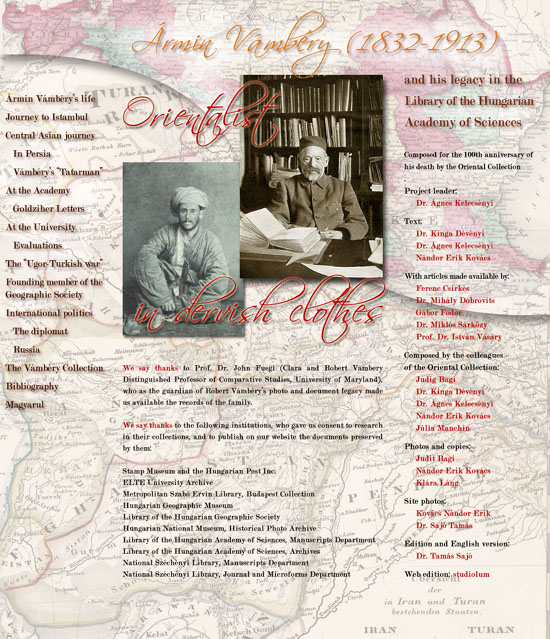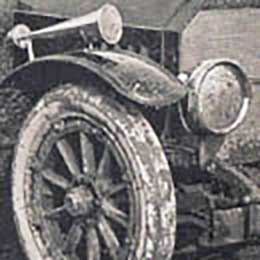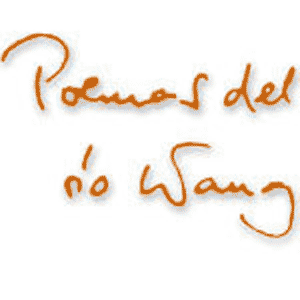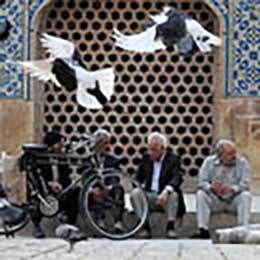 Ármin Vámbéry in dervish clothes, after his return from his Central Asian journey,
Ármin Vámbéry in dervish clothes, after his return from his Central Asian journey, photographed in a London studio

Just recently we found in the 1864/3 issue of the magazine Az Ország Tükre (The Mirror of the Country) the lithography made shortly after their arrival at Pest, which also represents the Mullah next to Vámbéry sitting in dervish clothes. His lively bright eyes cheerfully counterpoint Vámbéry’s grave pose, reflecting his enterprising spirit, and explaining why Vámbéry addressed the letter written to him to that rascal Tatar Mullah.



It is not by accident that the magazine was found just now. Three years ago, when I presented our webpage on the greatest Hungarian Iranologist, Sándor Kégl – you remember, the man with the cat –, composed from the material of the Oriental Collection of the Library of the Hungarian Academy of Sciences, after the presentation I was asked: once we systematically presented the legacies of the greatest Hungarian travelers in the East, Ibrahim Müteferrika, Sándor Kőrösi Csoma, Aurél Stein, Sándor Kégl, Dávid Kaufmann – see the full list here –, when are we going to turn to the scholar, who is perhaps the internationally best known among them, due to his amazing gift for languages and especially to his many faces. Now is the time for this.

Tomorrow will be the centenary of the death of Ármin Vámbéry, the poor Jewish private tutor and renowned university professor, dervish and diplomat, a personal friend of the Turkish Sultan, the Persian Shah and the British Prime Minister, the founder of Hungarian Oriental research. Tomorrow at five o’clock, at the international conference held in the Library of the Hungarian Academy of Sciences we will present the website prepared from his legacy preserved in the Oriental Collection, which illustrates if not all, at least a dozen of his many faces. After the presentation we will also publish the link here, and then I will also devote some special posts to the material included and not included in the site. Come, listen, and look back.










Add comment